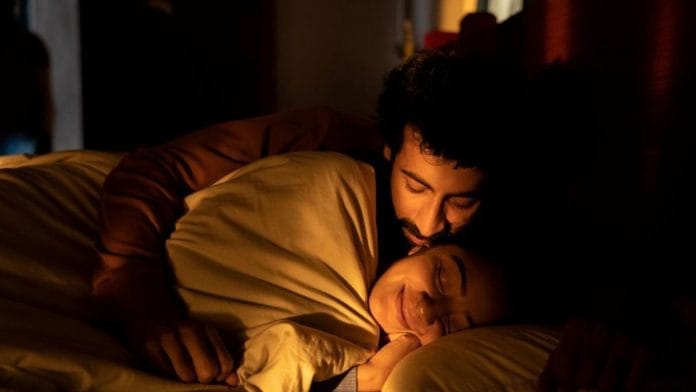New Delhi: Roshan Mathew’s initial response to Sri Lankan filmmaker Prasanna Vithanage’s script for Paradise was a no. The Malayali actor was worried that it paralleled Anurag Kashyap’s 2020 Netflix hit, Choked: Paisa Bolta Hai, where he played an unemployed husband from Mumbai whose marriage and life unravel in the backdrop of demonetisation. Paradise unfolds in a Sri Lanka grappling with the economic crisis of 2022, when food, fuel and funds were scarce.
Once Mathew met Vithanage and went through the plot with him, he knew he had to be a part of the film. He plays a TV producer, who along with his wife, visits Sri Lanka for their fifth wedding anniversary.
Paradise, presented by Mani Ratnam and Siva Ananth, and produced by Newton Cinema, is Vithanage’s first India project. But it is moored in his signature filmmaking–a social and political commentary conveyed through human relationships.
The film is both multi-genre and multilingual. It’s a romance, thriller, and drama with dialogues in Hindi, English, Tamil, Sinhala and Malayalam. But the underlying tension of a country—and a marriage—in crisis and conflict is universal. The movie tries to look at this duality.
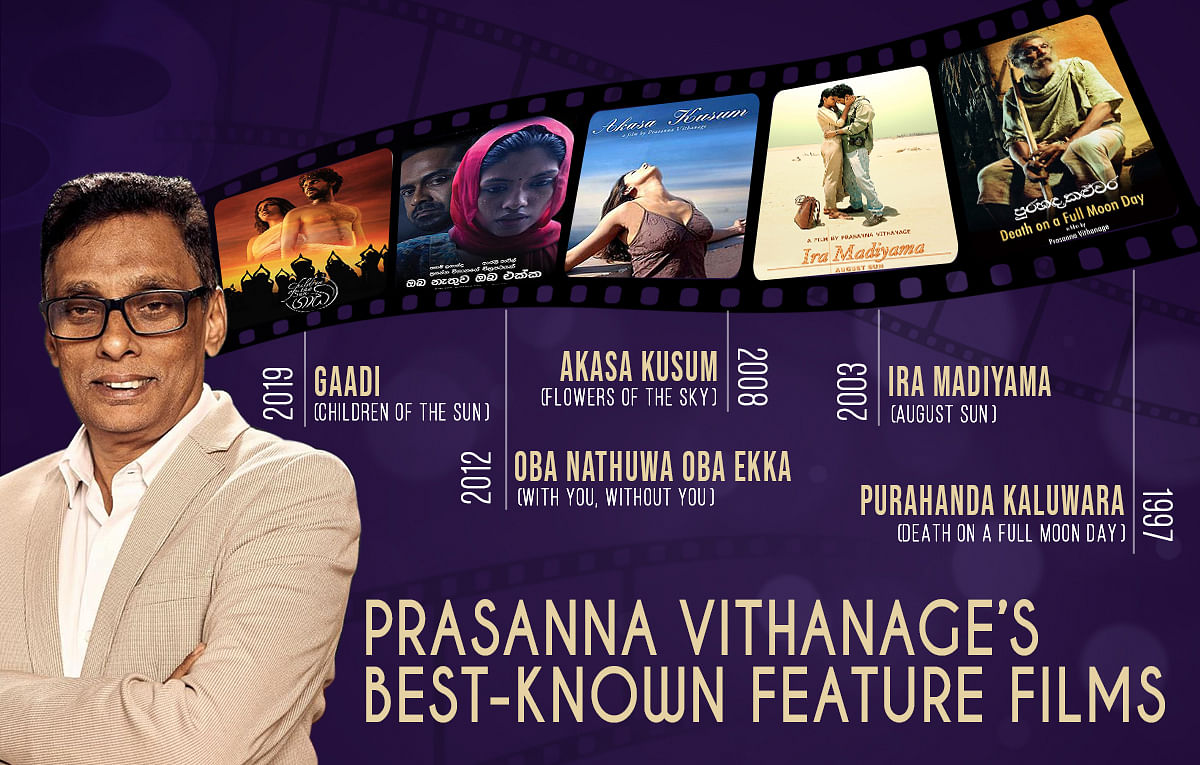
The film won the prestigious Kim Jiseok Award for Best Film last year during its premiere at the Busan International Film Festival. It also bagged the Audience Jury Award at the 23rd Las Palmas de Gran Canaria International Film Festival in Spain and was honoured with the Prix Du Jury Lycéen during its European premiere at the 30th Vesoul International Film Festival of Asian Cinema. Its worldwide release is slated for 28 June.
“I wanted to show how economic changes affect middle-class life, not just in Sri Lanka, but also in other parts of the world. In Sri Lanka, that bubble burst with the [economic] crisis. As an artist, I have reacted to that through my art form,” Vithanage told ThePrint.
Malayali couple Kesav (Roshan Mathew) and Amritha (Darshana Rajendran) arrive at a hotel in Riverstone Riverstone two months after Sri Lanka officially declared bankruptcy. The region is part of the Ramayana trail, with sites that correspond to the locations mentioned in the epic. Kesav, a filmmaker, is gearing up to direct an important series commissioned by Netflix, and Amritha is a blogger. Initially, both appear to be the kind of shallow travellers who would rather shoot videos than experience Sri Lanka.
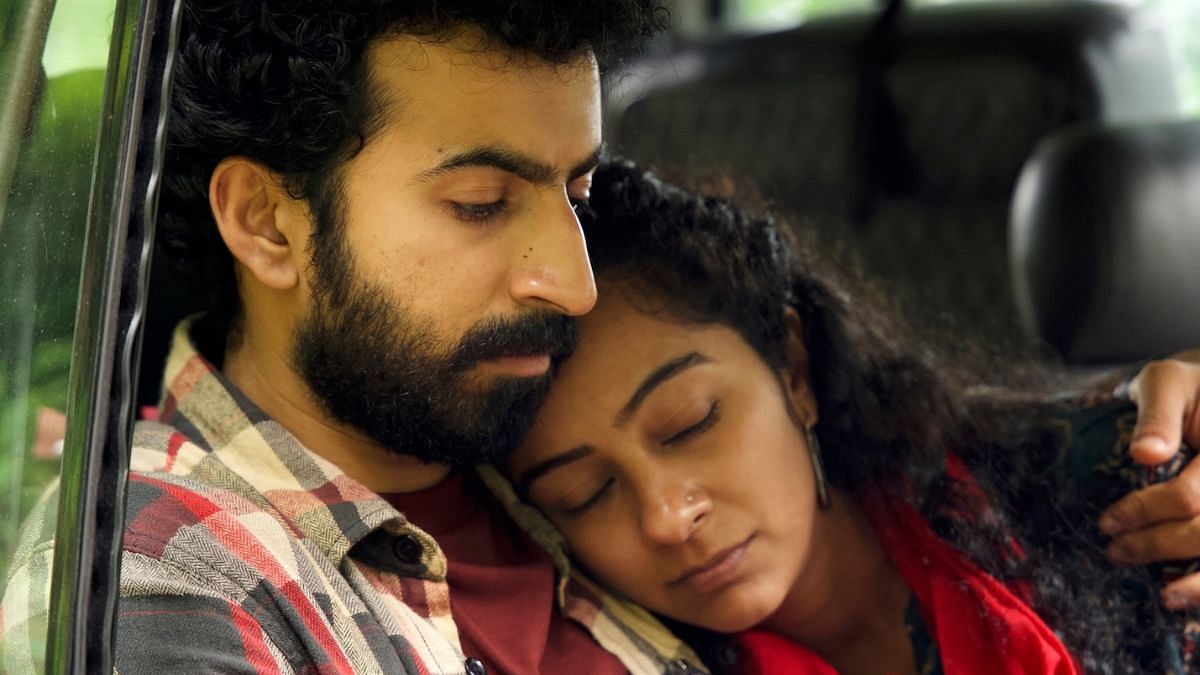
It is only after their laptops and phones are stolen from their bungalow one night that they are forced to see their surroundings differently. That’s when they finally see the cracks in their relationship, and the fragmented country they are visiting.
Capturing conflict, desperation
In his 25-year-long career, Vithanage has never shied away from taking an incisive look at crisis and conflict – political, social or cultural – in his homeland. Civil war, caste, class and ethnicity-based exploitation find space in his movies like Ira Madiyama (2003), Oba Nathuwa Oba Ekka (2012) and Gaadi (2019).
“If Newton Cinema had not produced the film, it might never have been made,” said Vithanage. There is also the fear of censorship. His 1997 award-winning Sinhala film Purahanda Kaluwara (Death on a Full Moon Day), which reflects on the devastation of the Sinhalese-Tamil civil war, was initially banned.
I wanted to show how economic changes affect middle-class life, not just in Sri Lanka, but also in other parts of the world. In Sri Lanka, that bubble burst with the [economic] crisis. As an artist, I have reacted to that through my art form—Prasanna Vithanage, Sri Lankan filmmaker
In Paradise, marital discontent is mirrored in the simmering tensions among the people of Sri Lanka. Rajeev Ravi’s cinematography adds to the drama. Early in the movie, the camera focuses on the rear mirror of the vehicle that Kesav and Amritha are travelling in. They seem oblivious to the fact that the paradise island is simmering with conflict and desperation. Trucks carrying fuel, and protesters with placards are shown through the rear mirror, even as Kesav and Amritha look forward to their ‘hard-earned’ trip.
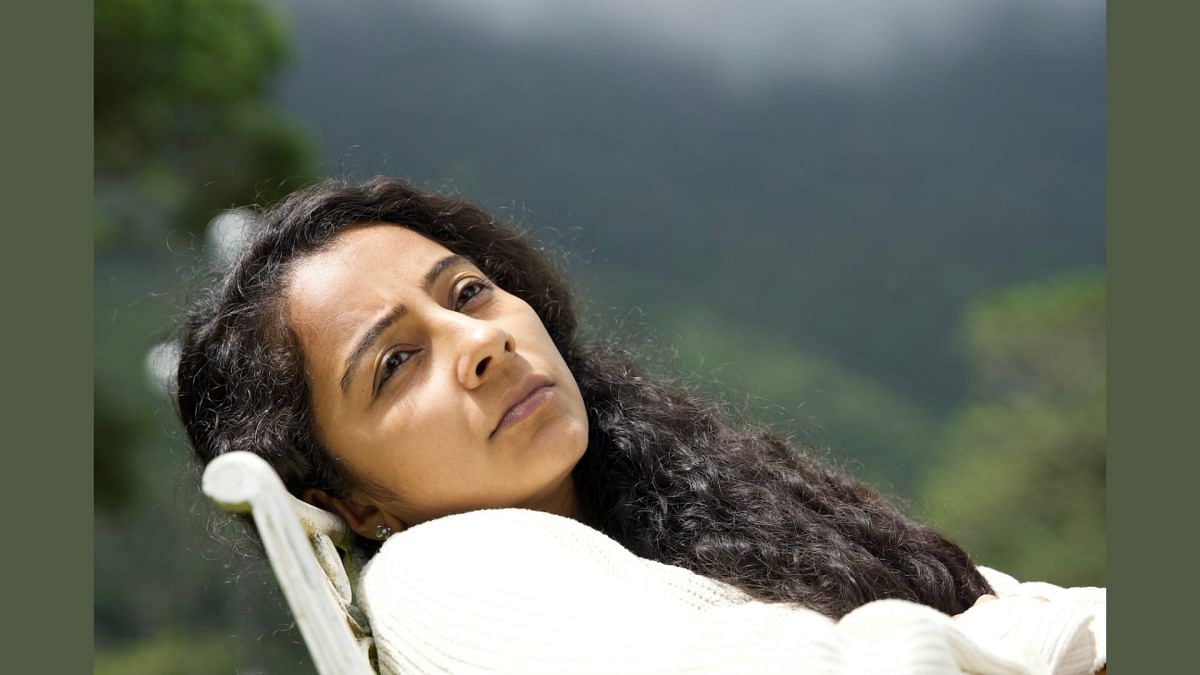
They choose to be unaware of how the economic crisis has impacted the daily lives of ordinary Sri Lankans. In one scene, the caretaker of their bungalow brings in candles for dinner, and Amritha comments, “candlelight dinner,” before being told that there’s a power cut.
He [Vithanage] has spent so many years working in theatre and films that his art has crystallised to the most minimalistic form. Every character, moment, object or scene in the film has a reason. The clarity of thought was extremely refreshing —Roshan Mathew, actor
The film also delves into the country’s economic crisis through a dialogue by police inspector Sergeant Bandara (Mahendra Perera). “There is not even a drop of diesel, and you want us to climb the hill,” he tells his staff when they call to report the theft.
The lack of fuel, money and power cuts also informs various crucial moments in the narrative. This includes delayed medical attention to a suspect who is beaten brutally by the police, and his eventual death.
Also read: Hamare Baarah suggests Muslims procreate more to alter India—Courts to decide on ban or release
History of ‘estate Tamils’
Amritha and Kesav tour Sri Lanka’s tea estates, which were previously owned by the British. During colonial times, the local Sinhalese population refused to work on these estates, so the British brought in labour from Tamil Nadu. When the colonisers left, many of these ‘estate Tamils’— as they came to be called—remained behind, but were treated as second-class citizens.
Many Indians during the crisis came for the Ramayana trail, since Sri Lankan currency was devalued and the Indian rupee was welcome. But most people would visit not to enjoy the place but to capture the trip and share with friends that they are enjoying life—Prasanna Vithanage, Sri Lankan filmmaker
Through the character of Shree, caretaker of the couple’s bungalow, and the suspected thieves, Vithanage brings up the long, painful history and exploitation of ‘estate Tamils’.
Sergeant Bandara, who handles the investigation of the case, ultimately tries to pin the theft on Shree, simply because he is an ‘estate Tamil’. The suspected thieves, too, belong to the same ethnic group. For Bandara, that is enough proof to manhandle Shree and force him to try and defend himself.
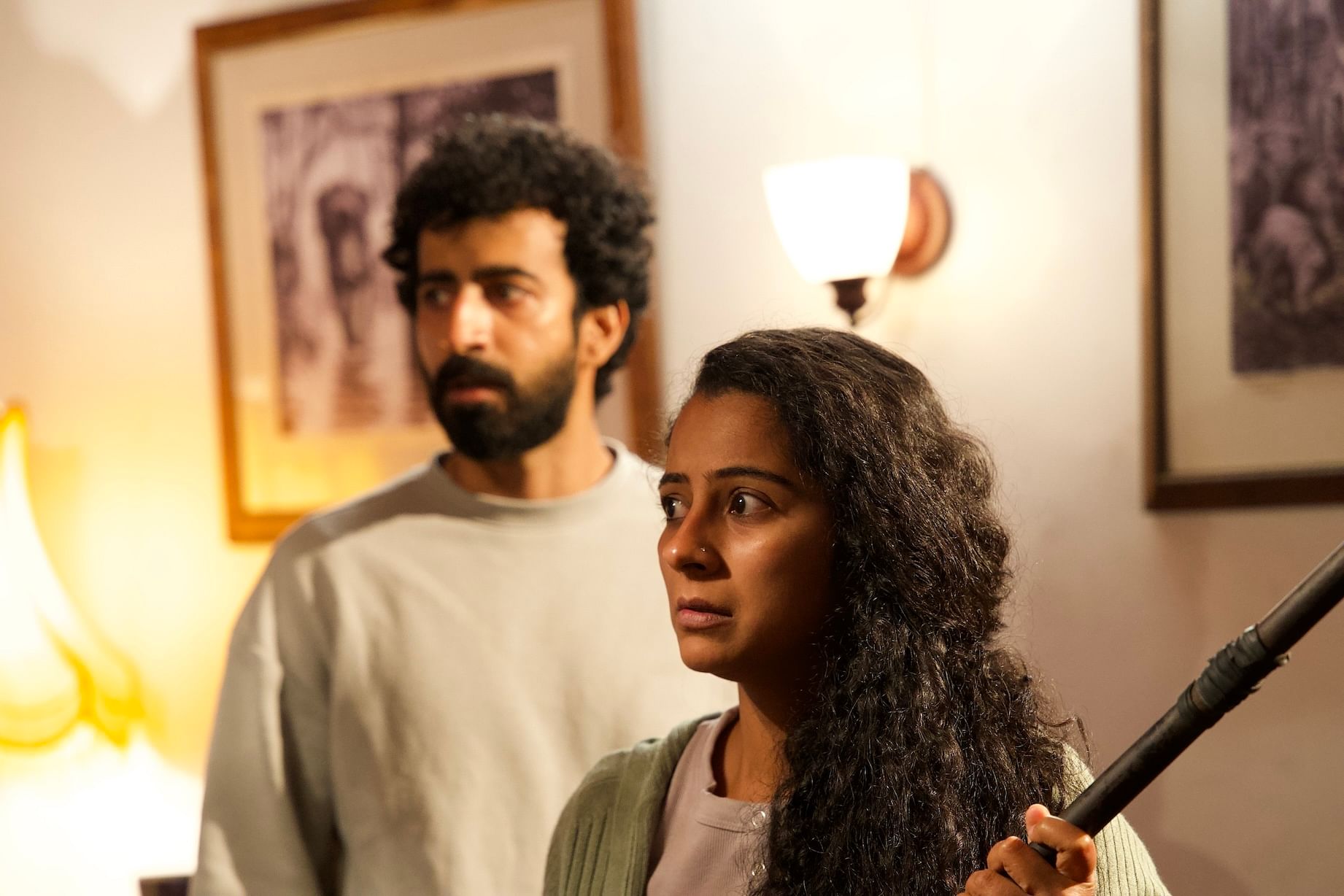
The other common link between India and Sri Lanka that Vithanage explores in his film is reverence for the Ramayana.
“How the mythological interacts with the modern was crucial for the story,” said Vithanage.
He ensures that it is not just the Valmiki version that finds mention in Paradise. Amritha points out to the guide Andrew (Shyam Fernando) that in the Jain version of the Ramayana, Sita does not wait for Lord Ram to be rescued from the clutches of Ravan, but goes to battle herself. It is an ominous foreshadowing of the climax of the film.
“Many Indians during the crisis came for the Ramayana trail, since Sri Lankan currency was devalued and the Indian rupee was welcome. But most people would visit not to enjoy the place but to capture the trip and share with friends that they are enjoying life,” he added.
Also read: Nehru’s idealism vs prejudiced Bharat. ‘Trust India’, says Javed Akhtar at book launch
‘Every character, moment has a reason’
The film depicts how tourists are treated in Sri Lanka. All their whims and fancies are politely catered to because they help funnel money into a flailing economy. Kesav is almost arrogant about it, throwing his weight around, demanding to be treated right. “They should be grateful we are bringing them dollars,” he tells Amritha in one instance.
It’s this attitude that propels a series of disasters that unfold in the second half of the film.
“How people respond to a crisis is very important for me,” said the actor, whose roles in the Alia Bhat-starrer Darlings (2022) and Poacher (2024) have been praised unequivocally by critics.
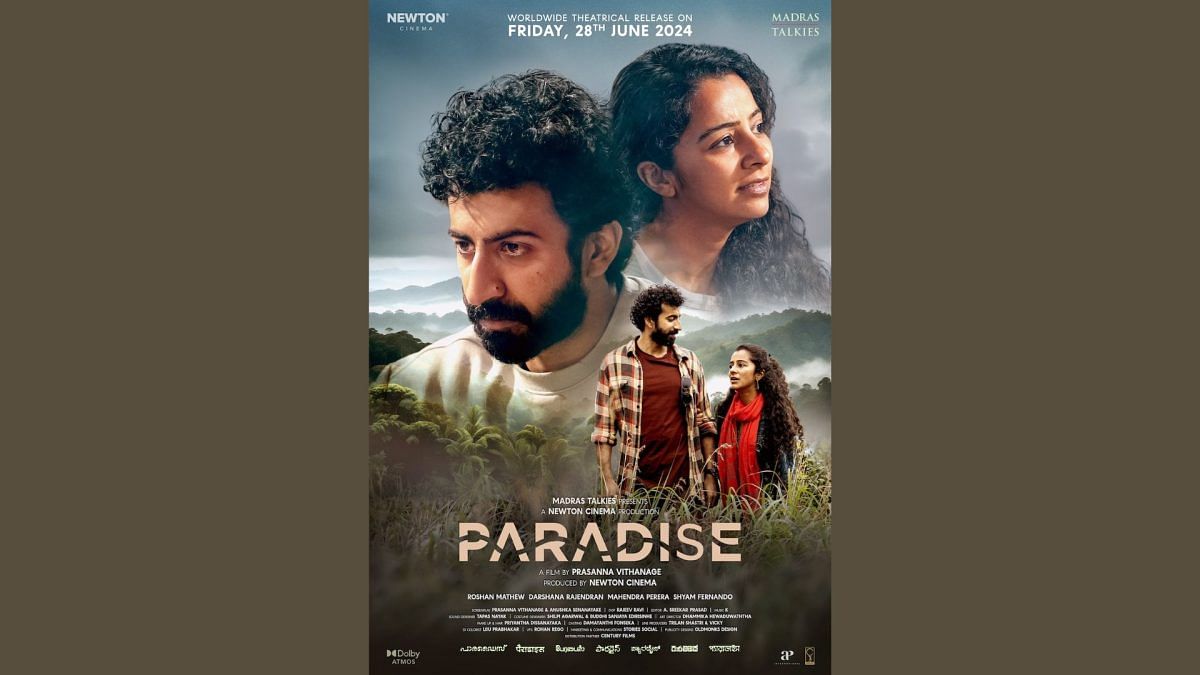
Amritha’s silence is as telling as Kesav’s need to share his comments on everything, including the ‘identification’ of the thieves who rob them.
“I had heard that there were actors who felt that there was not enough for Amritha to do in the film, which was surprising. Because even though she speaks less, there is a lot conveyed through her silence, and she goes through a big arc and journey,” said Darsana Rajendran. Vithanage saw Rajendran’s performance in C U Soon (2020) before locking her for Amritha’s role.
Vithanage did not adhere strictly to the script, allowing his actors the freedom to experiment with their scenes. He encouraged Rajendran to find her own way, in order to avoid making a film with a pertinent male gaze.
“He has spent so many years working in theatre and films that his art has crystallised to the most minimalistic form. Every character, moment, object or scene in the film has a reason. The clarity of thought was extremely refreshing,” said Mathew.
(Edited by Zoya Bhatti)



